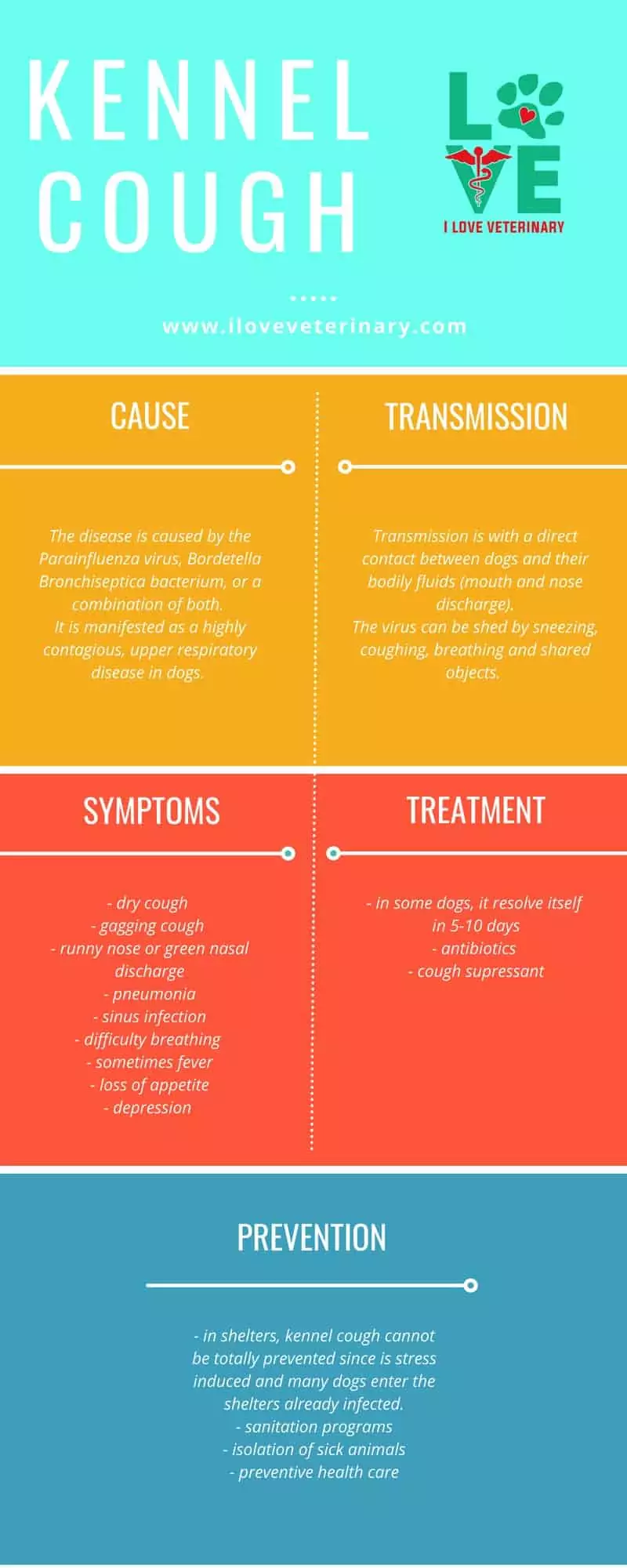If you are a dog owner, you may have heard of kennel cough. Maybe you are planning to take a vacation and are worried about leaving your pooch in a kennel. We got you! Here is everything you need to know about kennel cough.
What is kennel cough?
Canine infectious tracheobronchitis, better known as “kennel cough” or “canine infectious respiratory disease” is a common and extremely contagious respiratory disease which creates inflammation of the upper respiratory tract.
Different agents acting together (bacteria and virus) can cause kennel cough, such as:
- Bacterium Bordetella bronchiseptica (most common cause of kennel cough)
- Canine parainfluenza (CPIV)
- Canine adenovirus type 2 (CAV 2)
- Canine distemper virus (CDV)
- Mycoplasma
- Canine herpes virus (CHV)
How do dogs get kennel cough?
Kennel cough is transmitted through direct contact with an infected animal. The virus can also shed by sneezing, coughing and sharing objects.
Kennel cough is widespread in kennels, breeding establishments, doggy daycare, dog shows, animal rescues and any enclosed area with numerous dogs.
What are the symptoms of kennel cough?
Clinical signs may appear 3-10 days after exposure to the disease. The symptoms are:
- Cough that sounds dry and produces retching (like if the dog was going to vomit)
- Runny nose or green nasal discharge
- Sinus infection
- Difficult breathing
- Lethargy
- Depression
On the infographic below you can find quick facts about one of the most common respiratory diseases in dogs – the kennel cough.
How is kennel cough diagnosed?
Kennel cough is diagnosed based on clinical symptoms and exposure history to other dogs, along with discarding other diseases through blood tests, ultrasounds, and other examinations.
Are there any treatments for kennel cough?
Fortunately, kennel cough lasts approximately 5-10 days, depending on the age of the dog, it’s essential to keep the dog isolated to prevent further spreading. For severe cases, there are antibiotics and cough suppressants available.
How can kennel cough be prevented?
In shelters, prevention of kennel cough cannot be 100 per cent guaranteed as some dogs are already infected.
There is vaccination against the most common cause of kennel cough (Bacterium Bordetella bronchiseptica) which is mandatory in boarding facilities and doggy daycares.
Here you can find out more about other causes of coughing in dogs.
If you liked this article you can Pin the image below to your Pinterest!


